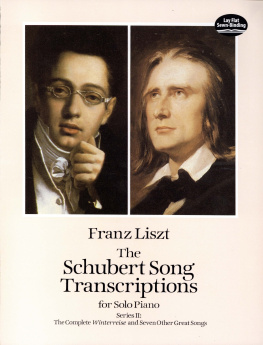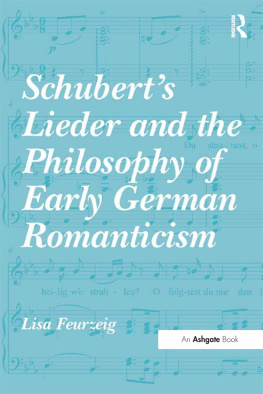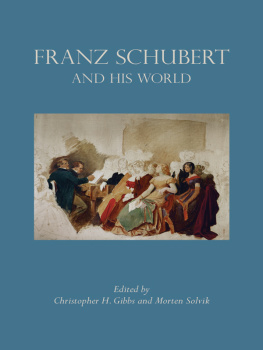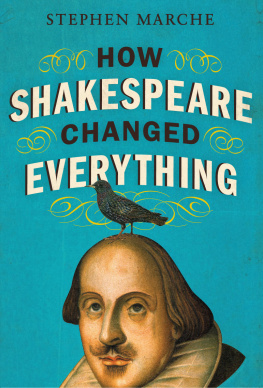Marching to the Canon
Marche militaire is Franz Schuberts most recognizable and beloved instrumental work. Originally published for piano four hands in 1826, this tuneful march Schuberts first of three military marches was arranged, adapted, and incorporated into new incarnations over the next two centuries. Its success was due to its chameleonlike ability to cross the still-porous borders between canonic and popular repertories, creating a performance life that made deep inroads into dance, literature, and film, and inspired quotations or allusions in other music.
Marching to the Canon examines the history of Schuberts storied Marche militaire from its modest beginnings as a duet published for domestic consumption to its now-ubiquitous presence. After detailing the composition, publication, and reception of the original march, the book analyzes the impact of transcriptions and arrangements for solo piano, orchestra, band, and other settings. In addition, it considers the ways the march was used symbolically, even manipulated, during the Franco-Prussian War and the two world wars, as well as the diverse creative uses of the piece by significant figures as varied as Willa Cather, Isadora Duncan, Walt Disney, and Igor Stravinsky. This study of the reception and impact of the Marche militaire offers a unique narrative illuminating the world that enshrined this remarkable score as one of the most memorable musical works of the nineteenth century.
Scott Messing is the Charles A. Dana Professor of Music at Alma College, and the author of two works available from the University of Rochester Press: Neoclassicism in Music and the two-volume Schubert in the European Imagination .
Messings in-depth investigation [of Schuberts "Marche militaire"] reveals that its reception and influence in society have been great. A welcome addition to the literature. Summing Up: Highly recommended. CHOICE.
This extraordinary book of immense learning and imagination provides a unique perspective on Schuberts Marche militaire no.1 and its afterlives, therby exploring a phenomenal success story in the history of music, media, literature, dance, and in European and American culture more generally. Only someone with Messings gift for unearthing the unknown and surprising the reader continually with the twists and turns in the reception hisotry of this duet could have realized such an ambition so successfully Lorraine Byrne Bodley, author of Schuberts Goethe Settings.

Eastman Studies in Music
Ralph P. Locke, Senior Editor
Eastman School of Music
Additional Titles of Interest
Analyzing Wagners Operas:
Alfred Lorenz and German Nationalist Ideology
Stephen McClatchie
The Ballet Collaborations of Richard Strauss
Wayne Heisler Jr.
Beethovens Century: Essays on Composers and Themes
Hugh Macdonald
Beyond The Art of Finger Dexterity: Reassessing Carl Czerny
Edited by David Gramit
Building the Operatic Museum:
Eighteenth-Century Opera in Fin-de-Sicle Paris
William Gibbons
European Music and Musicians in New York City, 1840 1900
Edited by John Graziano
Lies and Epiphanies: Composers and Their Inspiration from Wagner to Berg
Chris Walton
Of Poetry and Song:
Approaches to the Nineteenth-Century Lied
Edited by Jrgen Thym
Schubert in the European Imagination, Volumes 1 and 2
Scott Messing
Schumanns Piano Cycles and the Novels of Jean Paul
Erika Reiman
A complete list of titles in the Eastman Studies in Music series may be found on our website, www.urpress.com.
To the memory of my mother:
Drive carefully.
Contents
Illustrations
Figures
Musical Examples
Preface
This study was born as a poor orphan to the hefty manuscript that ultimately became the two volumes of my Schubert in the European Imagination . During the research for that work, I repeatedly encountered the composers Marche militaire no. 1 (D. 733, op. 51) in contexts that were both unexpected and alluring. I succumbed to the temptation to add to the account a final chapter on its performance and reception history, even as I was loath to acknowledge that its material (my fascination with the topic aside) did not quite fit snugly into the narrative I was constructing. Fortunately, cooler heads prevailed; a reader of the manuscript, in an otherwise positive response, recognized that it made an incongruous appendage to the overarching theme, which traced and analyzed the concept of Schuberts girlish character ( Mdchencharakter ) over three quarters of a century. Given the length of the final text, I did not require much persuasion to remove this material. I was confident that in the future, I would find the proper vehicle for the subject and return to it.
I suspect no musicologist relishes setting aside, even temporarily, the results of untold hours of research. Due for a sabbatical in the 201011 academic year, I found the opportunity to return to this chapter with the expectation that I could extract from its contents several articles, each devoted to one aspect of the compositions reception, notably as a dance created by Isadora Duncan and as a quotation in Igor Stravinskys Circus Polka . Prior to considering these two topics, I desired to learn the paths along which Schuberts march reached a status so that two of the most significant figures in twentieth-century culture found it a ready source for creative exploitation. Exploring these avenues yielded an unforeseen hoard, so large that by the end of my leave I had produced some two hundred thousand words. Another book was in the offing, one whose thesis represented something of a novelty in musicological studies: the life of a single workthe history of its composition, performance, reception, interrelations, and influenceeven though at first blush the score itself would not seem to qualify for such a project. Its familiarity made it more than a beloved work of the standard repertory; the evidence indicates that, for several decades on either side of the turn of the century, it was Schuberts most recognizable instrumental work. It attained that special position in spite of its lack of the musical values that this periods guardians of high culture considered necessary in a masterpiece. At the same time, the Marche militaire had a life beyond its performance and reception qua music; its impact rippled through other art forms while touching upon and being touched by, tangentially or deeply in turn, many of the significant developments that took place during the span of more than a century covered in this study.
Reception history ( Rezeptionsgeschichte ) is the usual term in musicology to describe such an enterprise, although the range of evidence mustered in this study suggests the related term Wirkungsgeschichte , at least as regards its usage in biblical scholarship. (The distinctions between Rezeption and Wirkung made by the literary theorists who introduced the terminology have not made deep inroads in musicology, which generally folds the latter into the former.) This study assesses the life of the Marche militaire as a phenomenon that embraces Ulrich Luzs understanding of Wirkung (effect, impact, response) in his account of the Gospel of Matthew: the history, reception, and acutalizing of a text in media other than the commentary, e.g., in sermons, canonical law, hymnody, art, and the actions and suffering of the church. Admittedly, there is a degree of temerity in intimating even a modest equivalence between a book from the New Testament and Schuberts march. (It should come as no surprise that the first composers to have the term Wirkungsgechichte applied to their oeuvre were Bach and Beethoven.) If the ultimate value placed on each by civilization is not commensurate, I am certain nonetheless that the Marche militaire served an equally valid if quite different human need.

